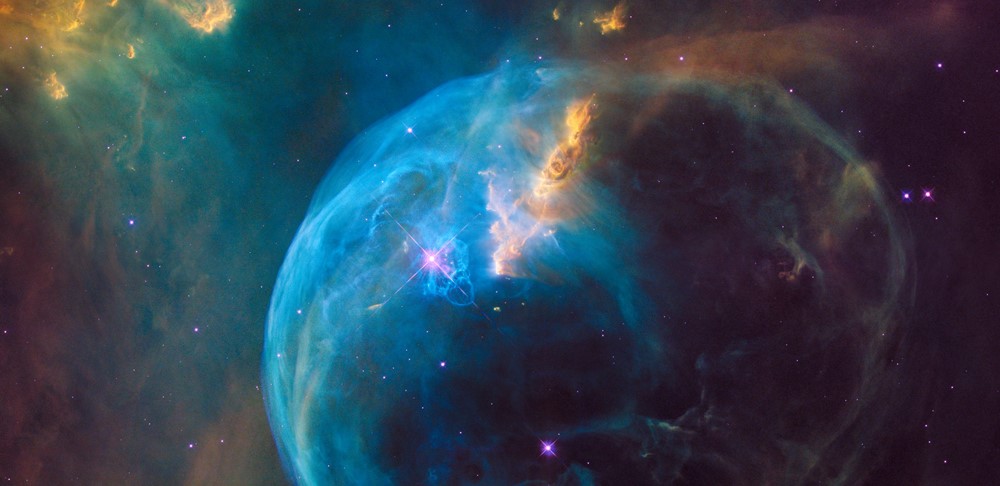Astrology: Art or Science?
In this article, we are going to find out if Astrology is an Art or a Science. The best definition of astrology is that it was a “pseudoscience” of the ancient world. There are two kinds of astrology: natural astrology which deals with the movement and position of the stars, Sun, Moon, and planets and the theories and observations that these movements lead to, and judicial astrology which is the effect of these movements on humans. The ancient observers of the skies – the astronomer priests – combined both these kinds of astrology. This continued for hundreds of years until man’s ability to study and analyze the information improved, then there was a distinct split between the two kinds of astrology. Natural astrology became astrology the science of astronomy and judicial astronomy became astrology as we know it today.
Non-believers in astrology dismiss it as a concept without a true foundation, a subject without a scientific base. But it is impossible to dismiss the great body of knowledge that astrology is based upon and the intriguing concept that much of what we are and what will become of us is preordained. Non-believers also imply that followers of astrology found in the subject a way of justifying their mistakes, weakness, and ignorance, and denying their free will. But believers in astrology understand that even if you believe that everything is preordained on the day of your birth it does not mean that all has been settled.

The child who comes into the world can be compared to a seed that has been sown. If you know the type of seed, the quality of the ground, the time of year in which it is sown, the climate of the region in which it will be sown… you can predict which plant will shoot up from the ground. It is less a question of influences than of conditions and it is criteria like these which the astrologer consults.
Astrology as a science
For the men of the ancient world, who perfected the system and the principle of the zodiac about 4000 years ago, astrology was obviously a science. For example, according to some sources, the Chinese Zodiac is already several thousand years old. It relied upon the study of phenomena in nature and certain heavenly occurrences, which returned at regular intervals. These observations, founded on the law of cause and effect, still hold true for contemporary scientists, even if today the technical applications which have been developed from it go far beyond anything that our ancestors could possibly have imagined.
Is it a question of progress? Yes and no. To our way of thinking it is since we have been given the means to live more comfortably and, of course, for longer. Consequently, you might think that modern man has not only faced up to his fate but conquered it. But have we really conquered the great curses, which have haunted man for thousands of years: natural disasters, famine, epidemics? Nothing certain. We may have kept them in check, but their menacing shadows are always hovering over our heads. And have these advances given us an optimistic vision of our future?
The great world drama, as played before us from day to day, tends to fill us with anguish, fear, or despair rather than enthusiasm or hope. You could also say that all these great technological advances have made us lose something – the capacity to marvel. This sense of wonderment was something that the men of the ancient world, surrounded by legends, myths, dreams, and mysteries were constantly aware of. We have relative comfort, materially and morally: we can live in the warmth when it is cold, see at night as if it were broad daylight, and contain illness which in the past decimated hundreds of thousands. Yet aren’t we disenchanted and don’t we constantly ask ourselves the same unanswered question: where do we come from? Who are we? Where are we going? Perhaps you could say that our preoccupations and behavior are almost, in nearly every respect, like those of our ancestors.
Astrology as an art
The zodiac is a reference grid in which you can chart an individual’s position and then read the data. Each of us possesses our own personal characteristics. But what we do with them depends as much on the circumstances, the conditions, in which we find ourselves, as on ourselves, our choices, and our deeds. The latter is not inscribed in our birth chart. On the other hand, the fact that we are faced with one choice rather than another is all clearly written down. And it is no exaggeration to say that the birth chart strengthens self-knowledge and the ability to live a full life.
Understanding the facts and information inscribed in the grid of our own personal zodiac comes back in the end to giving ourselves the means to be more perceptive, more far-sighted, more aware of our skills and weakness, but of our potential and limitations as well. It is also learning to distinguish between those things which are caused purely as the result of our own actions, and those which result from the circumstances and conditions in which we live. In other words, to make allowances for our responsibility and that of others. This is a basic attitude that is useful to bear in mind when learning astrology.
